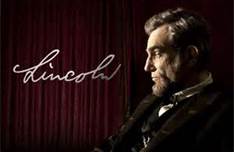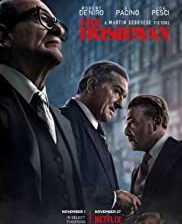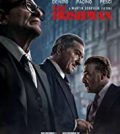- Two Thanksgiving Thoughts for the ACAPosted 10 years ago
- Shop til you Drop at the Healthcare Marketplace Part 2: Frustration!Posted 10 years ago
- An Early Casualty in the Affordable Care FightPosted 10 years ago
- Some Good News for a ChangePosted 10 years ago
“Lincoln” screenplay by Tony Kusher and directed by Steven Spielberg

Dan Walker on Film
Lincoln
Director: Steven Spielberg (The guy who directed Schindler’s List and Jurassic Park. In the same year.)
Cast:
Daniel Day-Lewis (The Unbearable Lightness of Being, Best Actor Oscars for My Left Foot and There Will Be Blood)
Sally Field (the career-igniting Sybil, Best Actress Oscars for Norma Rae and Places in the Heart)
Tommy Lee Jones (JFK, There Will be Blood, Best Supporting Oscar for The Fugitive)
David Strathairn (The Firm, L.A. Confidential, Good Night and Good Luck)
Joseph Gordon-Levitt (A River Runs Through It, (500) Days of Summer, Inception)
James Spader (Pretty in Pink, Sex, Lies and Videotape, Stargate, Secretary)
Hal Holbrook (That Certain Summer, Wall Street, The Firm, Into the Wild)
Running Time: 149 minutes (which I didn’t realize until I looked it up just now)
Because his movie roles are less frequent than California Condor sightings or Obama tantrums, you really take note any time Daniel Day-Lewis appears in a new movie. He’s the only actor who will draw me to a movie without hesitation based on his participation alone. (Wes Anderson is the only director with that same distinction).* His jarring, split-second appearances in the “Lincoln” teasers and trailer are worthy of Oscar consideration by themselves. You anticipate something special; he’s so much like the iconic President in appearance and presence. As he’s done repeatedly, he adapts his physical appearance, voice, even his posture (and his skeletal structure) and walk (his lanky saunter is spellbinding) to this role. He has taken the concept of immersing one’s self in a role to a level even De Niro never achieved.
It doesn’t seem possible Lincoln, Christy Brown and Daniel Plainview could be played by the same actor. Constantly referred to as “the greatest actor of his generation”, DDL lays claim to the title of the greatest movie actor of all time, even before “Lincoln.”* Looking at it mathematically, given the number of high-quality performances relative to the total number of films he’s done, Day-Lewis leaves the runner-up (Streep) in the dust. If that wasn’t enough, he also gives the clear impression he doesn’t care how the public perceives him and that, when he acts, his focus in purely on acting.
I didn’t read one single thing about the movie prior to seeing it (typical for me). Not knowing the rest of the cast made a game of recognizing actors as they appeared. Along with the above-listed cast members, I made a mental checkmark when they appeared on screen: David Strathairn, Bruce McGill, Tim Blake Nelson, Jackie Earle Haley, the guy who lost the horse negotiation to Hailee Steinfeld in “True Grit” and dreaded another face-off with her. The game screeched to a halt when I saw someone I was certain I’d seen before but couldn’t place. He was the focus of every scene he was in, even those he shared it with DDL, even before he spoke. His eyes conveyed energy and a grounding, a knowingness, with and, especially, delivery that made me anticipate his next words. Not until near the end of the movie did I realize this was James Spader, finally in a role that tapped into the depth of his talent. He seems to have reinvented himself and done so brilliantly. You always sensed something lurking behind his eyes and that something was capitalized on with his casting and performance.
Even with its deep, talented cast, the film’s strongest feature is its dialogue. If the Adapted Screenplay Oscar’s criterion was dialogue alone, the competition could throw in the towel now. As I watched and listened, it occurred to me he word and concept of “eloquence” has lost so much value I’m not sure it’s even in American dictionaries anymore. The conversations are so smart, so articulate and so vibrant I wanted to interject myself. Many of the lines start before the previous sentence is completed, yet nothing is lost.
When Mary Todd Lincoln (Field) speaks with Thaddeus Stevens (Jones) early in the film, it has the the feel of a magnificent aria, delivered with pitch-perfect confidence, tremendous authority and flair. (This moment will likely be the one shown at the Oscars when her nomination is read out). The writing and delivery are that impressive. Stevens’ reaction is another favorite moment in the film. DDL’s Lincoln – save for one understandable moment – patiently takes his time with every anecdote, and there are many. His raspy, Midwestern twang (sounding unlike any previous DDL character) is reminiscent of Walter Brennan. Tony Kushner, the screenwriter (Angels in America), pushes the writing dangerously close to excess with his beautiful use of the English language, which is enhanced by the actors and you get the feeling they all appreciated the lines they were given.
As with “Abe Lincoln in Illinois,” this film focuses on a small – but much more significant — portion of Lincoln’s life,*** the period from the Gettysburg Address to his assassination when nothing mattered more than the issue of the abolition of slavery. It was absolutely riveting to watch the events leading up to the House vote. Everyone had something intensely personal at stake. There seems to be nothing wrong with Lincoln caring less for the welfare of slaves than he did ending the war and bringing the country together. The buildup and the vote are so intense they almost make the news of the assassination anticlimactic.
When the first mention of Steven Spielberg in a review of a movie he he directed doesn’t appear until the review’s end, you know it’s special.**** I left the theatre thinking I’d seen a perfect film, the same feeling I had when I left “Schindler’s List.” Only because Spielberg has “Schindler” under his belt is “Lincoln” less revelatory than it would be otherwise but it’s no less impressive/entertaining/informative/engaging.
The one thing that bothered me – but only a little — and it was the same thing I noticed with “Flight” (it’s agonizing for me to mention both movies in the same sentence) is that Spielberg borrows a significant aspect from a previous film he directed. “Lincoln” begins on the battlefield with excessively realistic, graphically violent and repellent scenes the same way “Saving Private Ryan” did. After experiencing “Ryan”, we’re less shocked with the Lincoln’s battle scenes but they’re still potent, especially in the intensely emotional backdrop of the Civil War.
The entire production is tremendous; very rich and authentic, as though everyone involved invested every ounce they had into the film making. I’m not sure I’ve ever thought that about another movie before. I certainly never said that to myself, much less put it in print.
Note to “Argo”: “Lincoln” just saw your bet and raised it.
By a LOT.
Dan
November 18, 2012
==============================================================
* I realized after I typed this sentence that DDL was in “Nine”, which was so critically brutalized it’s understandable anyone would forget he was in it or that it was even released. I’ll rent it out of curiosity and to make my statement accurate.
** I’ve never come across an article on similarly amazing character actors who are unrecognizable from role to role. Two that come immediately to mind are Kenneth Mars and Stephen Root. Rather than itemize their great performances – an exercise in futility because both they’re so prolific — check out their filmographies on a Movie DataBase. The one that’s on the Internet.
*** After viewing “Abe Lincoln in Illinois” last year, I was convinced Raymond Massey would own the character on film forever . . .
**** I’m in no way a die-hard Spielberg fan. His movies are hit-or-miss with me. The fact he’s directing a movie means little to me until other factors about the film draw me to it. I’m still trying to forget “1941”, “Empire of the Sun” and “Always.” I was baffled by the popularity and success of E.T. I couldn’t even sit through “Tin Tin”. It was the combined draw of director, writer, lead actor, topic, and period that made me want to see “Lincoln” and the teasers and trailers ignited that interest.



